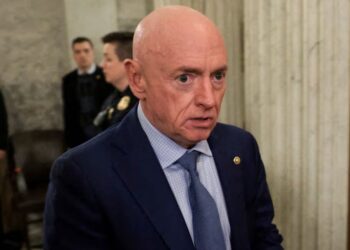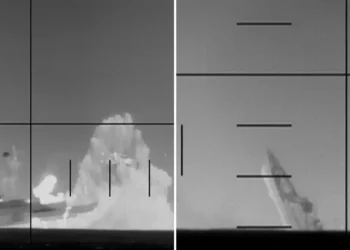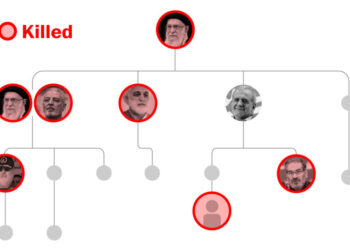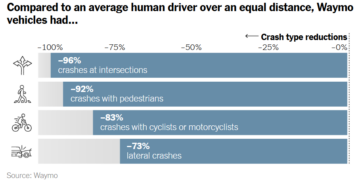The Central Lie of Prediction Markets
A few hours before Donald Trump gave his State of the Union address, Republican sources told the PBS correspondent Lisa...
Nature Report, Killed by Trump, Is Released Independently
Scientists and other experts were preparing a first-of-its-kind assessment of the health of nature in the United States when President...
Lindsey Halligan Is Under Investigation by the Florida Bar
Lindsey Halligan, the former U.S. attorney in the Eastern District of Virginia who brought criminal cases against President Trump’s enemies...
Hubble Spots Bizarre Galaxy That Appears to Be 99.9 Percent Dark Matter
The universe is overrun with dark matter, outweighing the ordinary stuff that stars and planets are made of five-to-one. But...
8 New Books We Love This Week
Every week, the critics and editors at the New York Times Book Review pick the most interesting and notable new...
War Hero Says Random People Off the Street Would Handle Iran Better Than Trump
A decorated military veteran has sharply criticized President Donald Trump’s approach to Iran, claiming that even “random people off the...
DHS Insiders Spill What Really Got ICE Barbie Fired
Department of Homeland Security (DHS) staff say Kristi Noem sealed her own fate with a humiliating performance in two congressional...
Hidden details in the video of a US submarine sinking an Iranian warship, according to a WWII expert
A split image showing a US Navy submarine torpedoing an Iranian warship. US Department of DefenseA US Navy submarine sank...
McDonald’s C.E.O. Takes a Big Bite Out of a Burger. Maybe Scratch ‘Big.’
When the McDonald’s chief executive, Chris Kempczinski, posted a video of himself eating lunch last month, it was not the...
Almost every Democratic AG just sued Trump over tariff refunds, demanding money back now
Some two dozen states challenged President Donald Trump’s new global tariffs on Thursday, filing a lawsuit over import taxes he...














